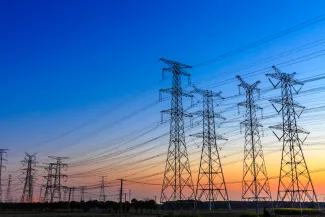
Analysis: U.S. coal stockpiles could cut demand from Wyoming’s Powder River Basin mines
Click play to listen to this article.
A new analysis of federal data shows that U.S. power plants are sitting on a huge stockpile of coal, much of which came from the Powder River Basin. Experts say the surplus could reduce demand.
The stockpiles amount to 138 million tons of coal, with a value of $6.5 billion, according to a new report from the Institute for Energy Economics and Financial Analysis.
Seth Feaster is an institute energy data analyst and one of the authors, and said coal deliveries to power plants have been declining - but added that "doesn't appear to be enough."

© zhaojiankang - iStock-802436842
"That's going to squeeze coal producers for the next year or more," said Feaster, "because the power companies are going to have to burn down that inventory, and try and reduce what their deliveries are going to be."
Feaster said previous stockpiles have taken up to three years to get through.
This excess can happen when the price of natural gas drops, driving power plants that utilize a mix of fuels to opt for more natural gas.
Feaster said another reason power companies may choose gas over coal is that while coal plants are aging and declining, natural-gas production has become a more reliable and responsive source - which mixes well with increasing renewable energy supplies.
"The ability of gas-fired power to adjust quickly to the ups and downs of solar and wind production," said Feaster, "has made it an integral part of the modern energy mix for power production."
Feaster said renewable energy is appealing to power companies because it's relatively inexpensive to build, and there are no additional fuel costs after it's built.
Although the incoming Trump administration appears to be broadly supportive of fossil fuels, Feaster said gas use will affect coal demand.
"I think it's pretty clear that anything that's going to help gas in the overall energy mix is likely to help gas much more than coal," said Feaster, "because it's going to keep prices on the fuel cheaper."
According to the report, coal deliveries have been decreasing for years. About 30 million tons were delivered per month this year, compared with 80 million tons per month in 2008.
















